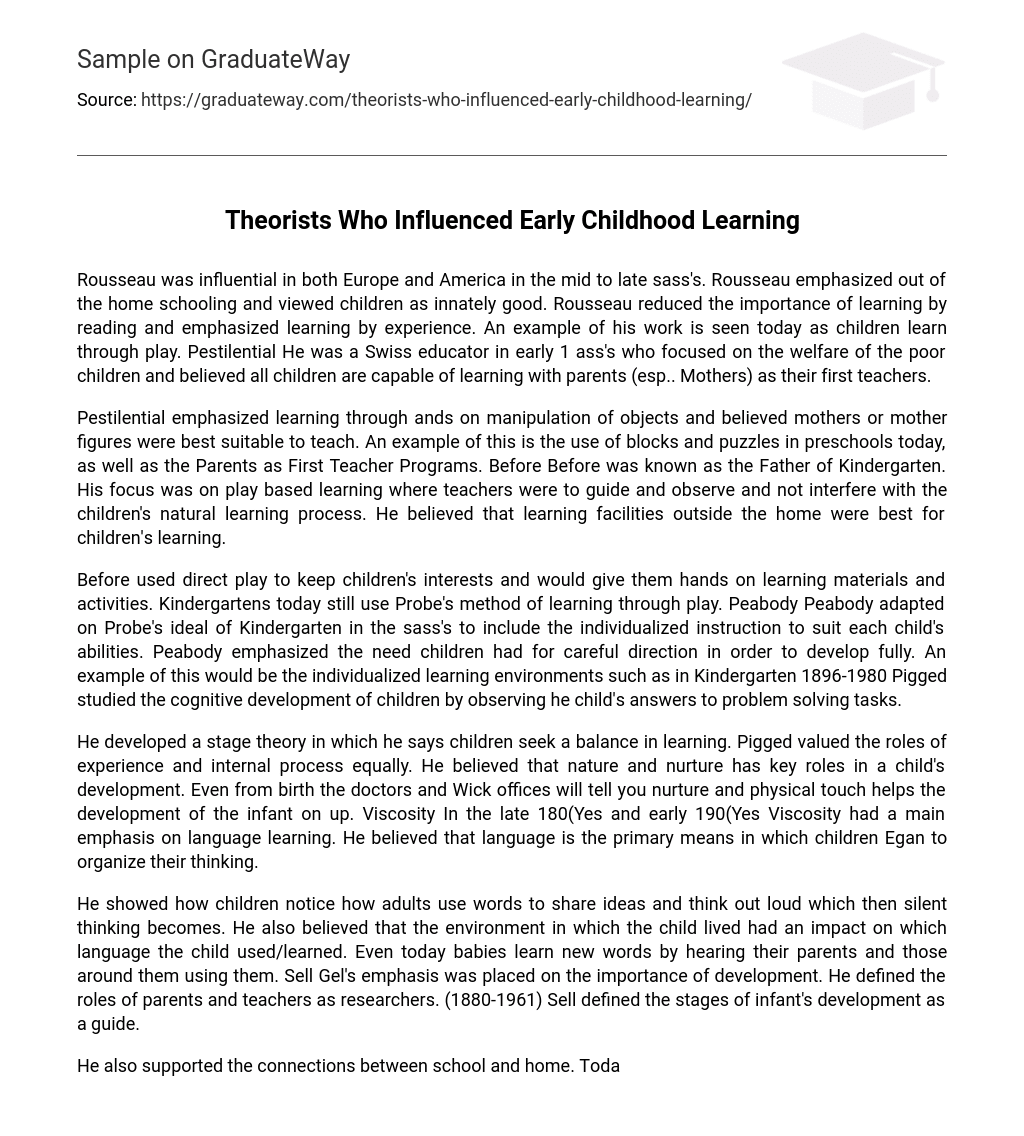Rousseau was influential in both Europe and America in the mid to late sass’s. Rousseau emphasized out of the home schooling and viewed children as innately good. Rousseau reduced the importance of learning by reading and emphasized learning by experience. An example of his work is seen today as children learn through play. Pestilential He was a Swiss educator in early 1 ass’s who focused on the welfare of the poor children and believed all children are capable of learning with parents (esp.. Mothers) as their first teachers.
Pestilential emphasized learning through ands on manipulation of objects and believed mothers or mother figures were best suitable to teach. An example of this is the use of blocks and puzzles in preschools today, as well as the Parents as First Teacher Programs. Before Before was known as the Father of Kindergarten. His focus was on play based learning where teachers were to guide and observe and not interfere with the children’s natural learning process. He believed that learning facilities outside the home were best for children’s learning.
Before used direct play to keep children’s interests and would give them hands on learning materials and activities. Kindergartens today still use Probe’s method of learning through play. Peabody Peabody adapted on Probe’s ideal of Kindergarten in the sass’s to include the individualized instruction to suit each child’s abilities. Peabody emphasized the need children had for careful direction in order to develop fully. An example of this would be the individualized learning environments such as in Kindergarten 1896-1980 Pigged studied the cognitive development of children by observing he child’s answers to problem solving tasks.
He developed a stage theory in which he says children seek a balance in learning. Pigged valued the roles of experience and internal process equally. He believed that nature and nurture has key roles in a child’s development. Even from birth the doctors and Wick offices will tell you nurture and physical touch helps the development of the infant on up. Viscosity In the late 180(Yes and early 190(Yes Viscosity had a main emphasis on language learning. He believed that language is the primary means in which children Egan to organize their thinking.
He showed how children notice how adults use words to share ideas and think out loud which then silent thinking becomes. He also believed that the environment in which the child lived had an impact on which language the child used/learned. Even today babies learn new words by hearing their parents and those around them using them. Sell Gel’s emphasis was placed on the importance of development. He defined the roles of parents and teachers as researchers. (1880-1961) Sell defined the stages of infant’s development as a guide.
He also supported the connections between school and home. Today you have to have your child screened, where they make sure they are meeting the stages in development as defined. Dewey Dews theory emphasized three key factors of education; experience with authentic materials, meaningful to the individual student and based on problem solving activities. He believed that learning occurred through those types of situations. (1859-1952) Defined the key role of the teacher was to uncover the child’s thoughts, interests and feelings. Also to develop a lifelong love of learning.





